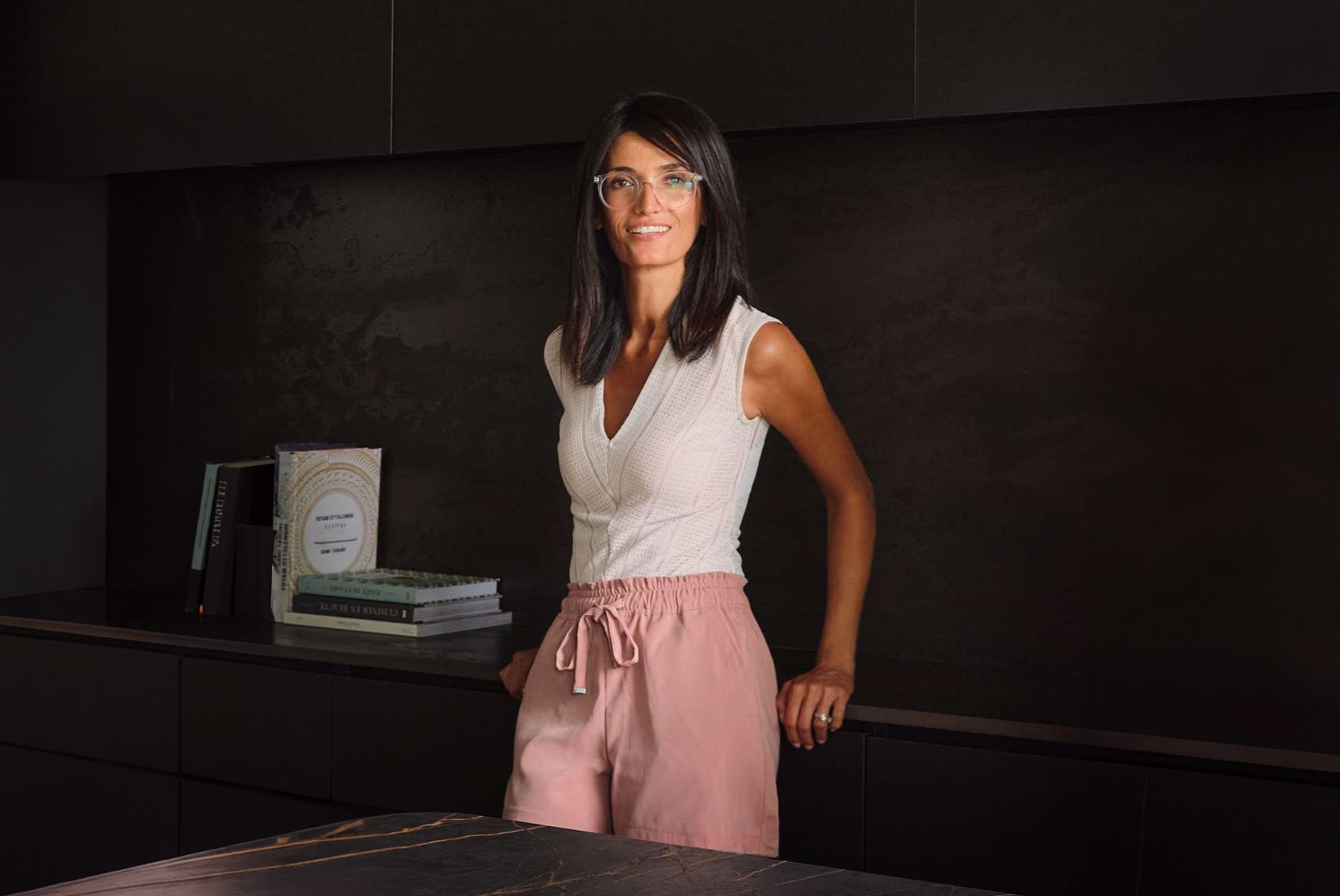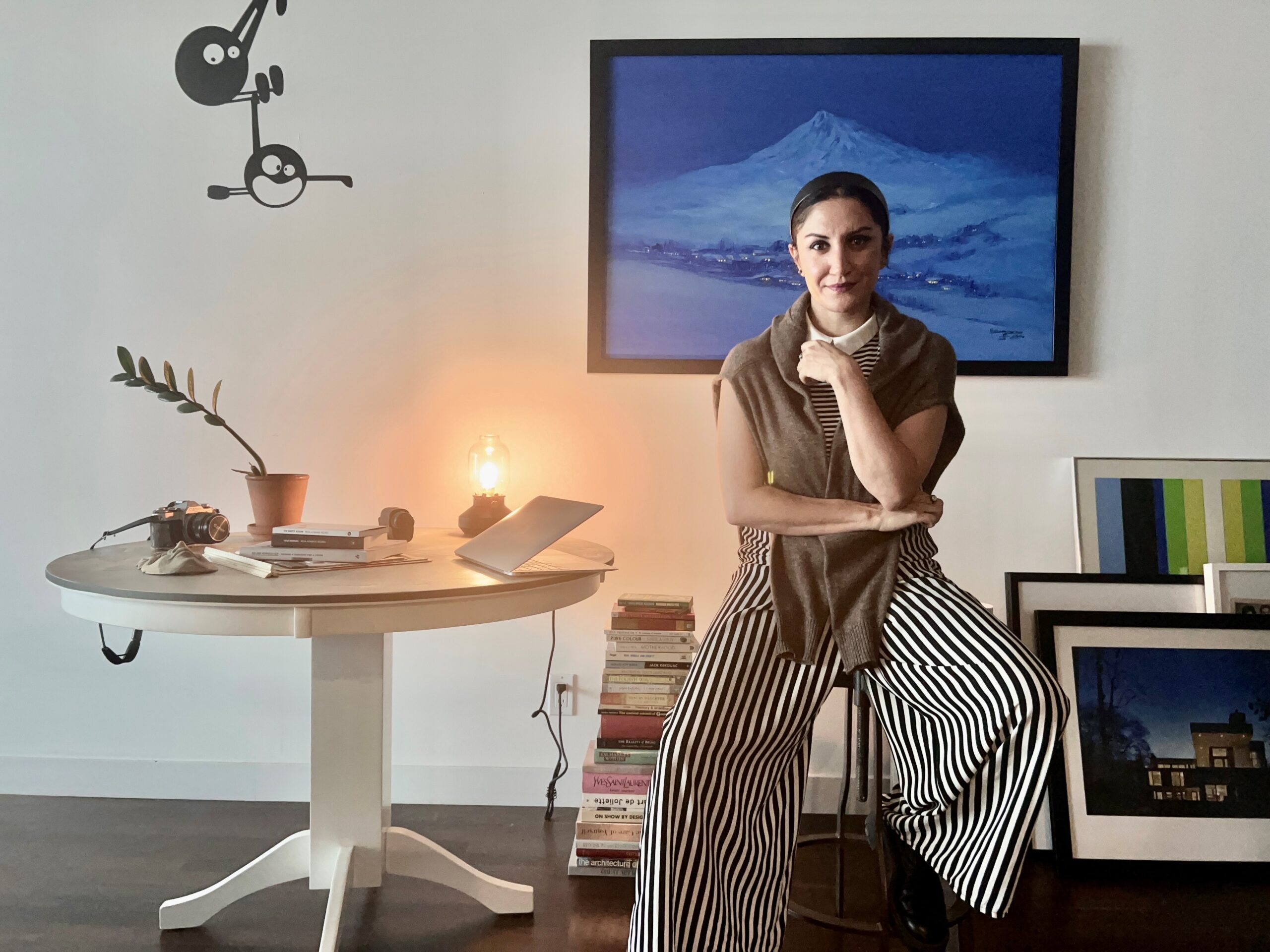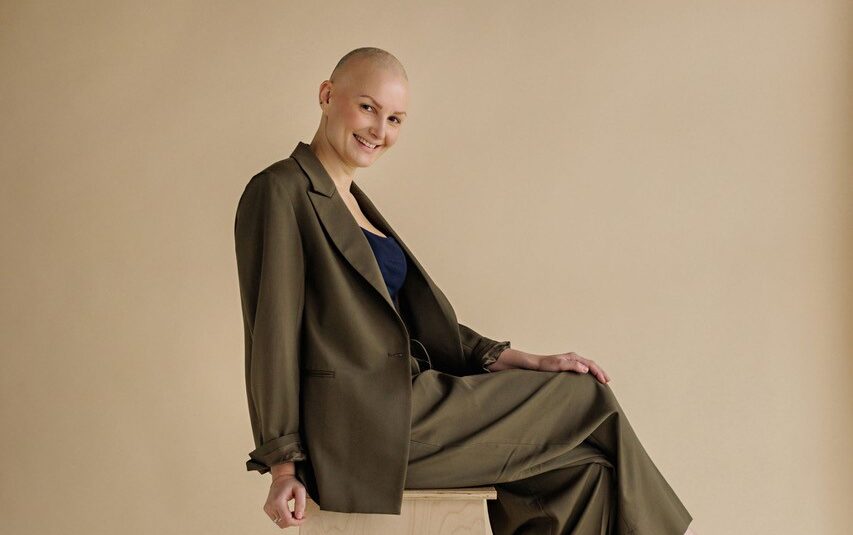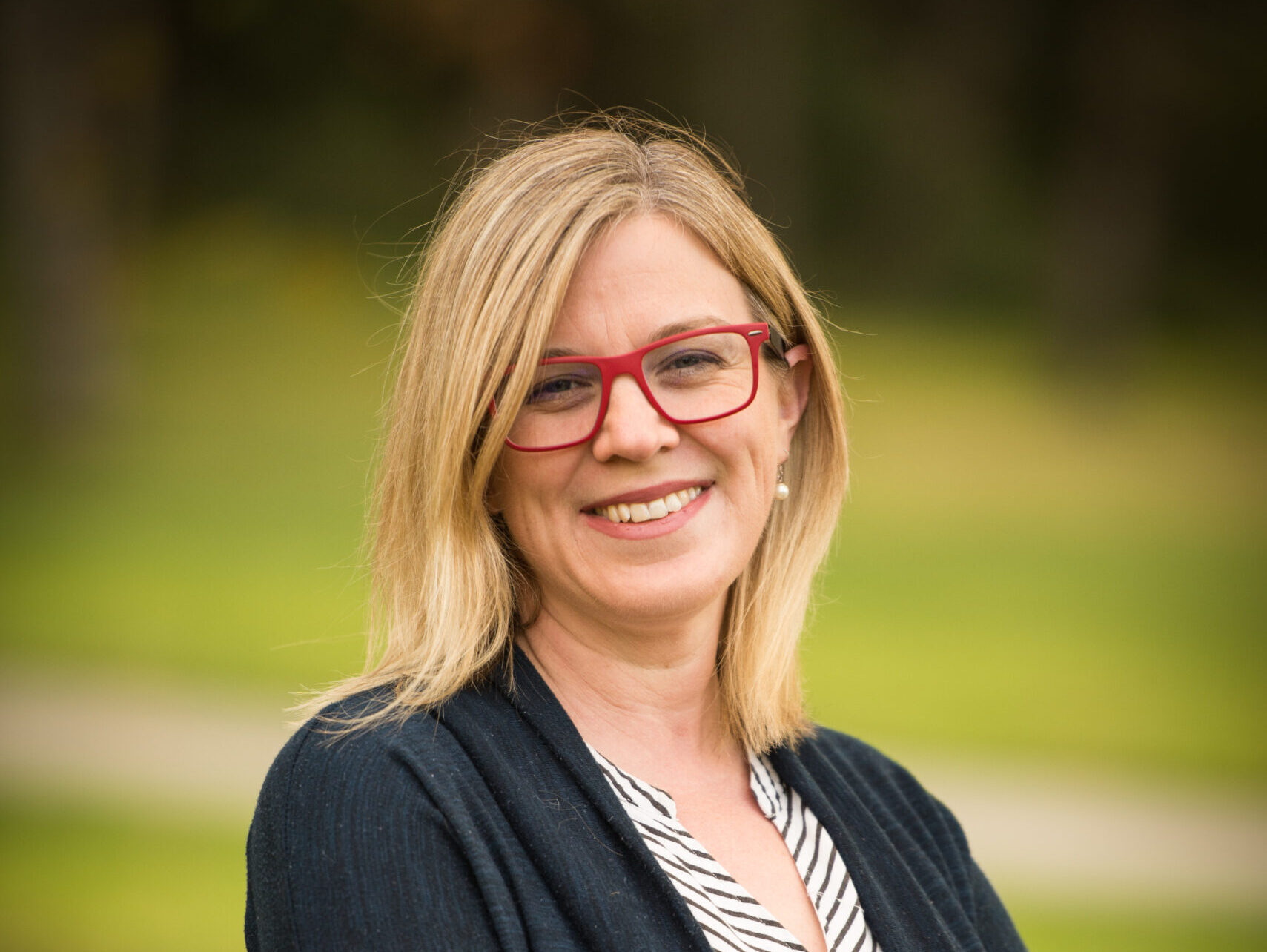
Pascale Nakhlé, an accomplished interior designer and business owner based in Montreal, Canada, has aligned her passion for design with her entrepreneurial spirit, creating transformative spaces and impacting lives along the way.
Her journey began early, as she fulfilled her childhood dream of starting her own business after university. Despite facing challenges, Pascale’s determination and commitment to learning have served her well. Pascale is proud to have won multiple design awards, been a featured designer on television shows, and maintained a consistent career for fifteen years with loyal clients.
Pascale’s entrepreneurial journey began in 2004 when she started her own firm fresh from university.
At the time, she had an incredible amount of ambition but not enough experience. She then worked as an employee for an interior design company, then transitioned to work as a construction materials representative in various companies where she seized opportunities to acquire beneficial experience and knowledge for her career. During these formative years, Pascale specialized in designing thoughtful spaces and sustainable design, emphasizing wellness and space maximization, a theme that persists in all her subsequent work.
Pascale’s prominence grew as she became a featured interior designer on a reality TV show between 2009-2019 for ten seasons, exposing her work and personality to a wide audience. Despite the disappointment of her initial business setback, she views it as a crucial learning experience that emphasized the value of resilience and prompted her to gain further expertise.
Pascale and her team spend a great deal of time listening to and learning of their clients – in some way they become an extension of clients’ families.
Clients need to trust their interior designer to advise them and lead projects to achieve the best outcomes. Construction projects are complex. Pascale’s firm leads projects that last anywhere from six months to three years. From start to finish, there are decisions, urgencies and differences that must be reconciled and opportunities identified.
Projects can also be quite hard on couples and families. Having a designer who can support their communication, identify, and resolve issues, and facilitate difficult discussion and decision around finances is hugely beneficial – not only to the project, but to the people involved. Pascale offers that Interior Designers’ roles are 30% creative and technical, 30% management, 30% psychology, and 10% the personality of the designer them selves.
They foster trust and, in some ways, become part of the family. For each project, they aim to craft space to enhance the quality of life and relationships of those who will be occupying it. The client-designer relationship is an intimate one, where dreams, needs, lifestyles, and ideas are shared.
Pascale acknowledges the invaluable support of her team, family, and friends since establishing her own business in 2008.
As a small business owner, mother, and women from an immigrant family, she shares her business and leadership philosophy, along with invaluable advice for aspiring entrepreneurs in the interior design industry.
When Pascale founded her firm in 2015, her two children were quite young. She reasoned that being independent was the best way for her to reconcile the responsibilities of family and career, and to realize her ambition of having a positive impact on people’s lives. Pascale notes that you cannot have it all 100% but if you are doing what you love, making smart decisions, and have the right support, you can be quite happy and successful.
Pascale reflects on her husband and mother for supporting her with sharing family responsibilities with gratitude:
“They say that behind every great man, there is a woman… In fact, I believe that behind every successful person, there is a village. Behind every business, there needs to be a team, and behind every business, there is a community.”
She values the support of her husband, mother, and friends, who has been a constant source of encouragement throughout her career. Pascale’s immigrant background also shapes her drive for success, instilled with a sense of responsibility to honor her family’s sacrifices.
“When you come from immigrant parents, you feel a responsibility to succeed as a way of thanking them for all the sacrifices they’ve made for you.”
Interior designers understand clients and support their decisions on investment, aiming to increase not only property value but also quality of life.
Pascale draws similarities between interior designers and financial planners.
There is a common misconception that interior designers are only about the aesthetics of a space – the paint, furniture, or decorations. In fact, interior designers are regulated professionals with technical training that span multiple disciplines – including construction methods, material science, thermodynamics, acoustics and much, much more.
Like Financial Planners, Interior Designers leverage their knowledge, experience and resources to support individuals and families in achieving their goals and mitigate risk. They can impact people’s quality of life over time – from a young age through to retirement. Almost no construction project goes 100% according to plan, but Interior Designers know what to look for and how to prevent or mitigate the impact of risk or problems that may arise.
In much the same way people benefit more from Financial Planners the earlier they are engaged; clients should engage interior designers as early as possible. Projects can be more considerate, and investments optimized when interior design professionals are engaged before any work is done.
Authenticity, accountability and relationships are central to Pascale’s leadership style.
Leadership has a direct impact on the quality of work and how employees experience the workplace. Pascale values authenticity and notes that she does not have a different personality as an employer than as a person. She believes that by being authentic and genuine, she is able to build a strong and loyal team.
Part of this, however, is demonstrating vulnerability. Although this is difficult, especially as a women entrepreneur in the construction industry, she finds that it builds trust and fosters productive communication within the team. And it allows team members to do them, supporting an environment where they can ask for help or share ideas.
Pascale describes her leadership style as democratic, with the view of everyone feeling comfortable to participate. The best design decisions made when everyone contributes ideas, observations, and concerns, and when people respectfully challenge each other.
“I lead by example; I’m a democratic leader. Each member of the team is very important. Even though I make the final decisions, we work in compliment to each other. I believe that success is achieved as a team.
I need loyalty and trust around me. I need to feel free to be myself, and vice versa for the people with whom I work. I choose individuals who are equally dedicated to their personal development as they are to the development of the company.”
Pascale notes that entrepreneurs should trust their instinct and that only you know what is best for your business. The times when she did not trust her instincts are when she made mistakes.
“Always listen to your instinct and do not be distracted by fears. Similar to parents raising their children, entrepreneurs know what’s best for their business.”
Pascale’s story serves as an inspiring guide for aspiring entrepreneurs, highlighting the significance of trust, intuition, and a genuine connection with one’s team and community.
Pascale’s journey as an interior designer and business owner is a testament to the power of resilience, drive, and authentic leadership. Her success, marked by international awards and featured appearances, is deeply rooted in the support of her team, family, and friends.
Pascale’s philosophy reflects the delicate balance between personal and professional life, emphasizing the importance of passion, smart decision-making, and a strong support system. Her commitment to enhancing the quality of life through thoughtful design, coupled with a democratic leadership style that values authenticity and accountability, showcases the multifaceted role of interior designers in shaping both spaces and relationships.





